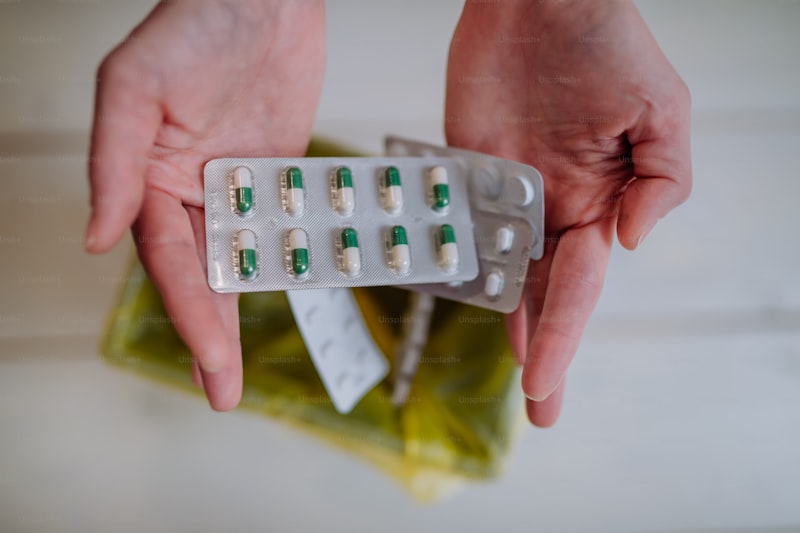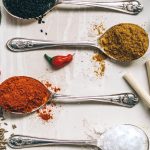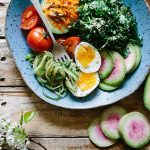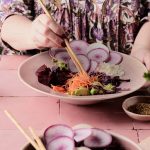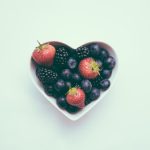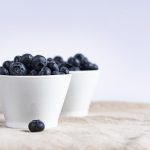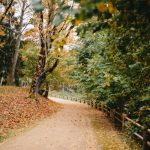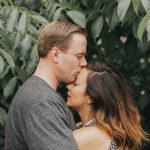Canadian-born Le’Nise Brothers, mBANT, mCNHC, is a wellbeing expert, who’s lived in the UK for over twenty years. A registered nutritionist who specialises in women’s health, hormones and the menstrual cycle, she is also a YogaLondon 200-hour graduate who teaches at Frame. Le’Nise’s empowering take on period health, and her podcast ‘Period Story’, have helped hundreds of women to improve their mentrual and hormonal health. Her first book ‘You Can Have A Better Period’ is due to come out in March 2022.
1. What was your journey to becoming a nutritionist?
I’ve always been interested in health and wellbeing. I had health problems of my own, including heavy and painful periods, alongside anxiety and depression, and I used food to improve the way I felt and I was interested in how it worked.
I worked in advertising for 15 years and I felt burnt out – at the same time I was pregnant. I asked myself the question, ‘What else?’ I knew that working the way I was wasn’t sustainable. On maternity leave the company I was with were messing me around I thought, ‘Seriously, I can’t have this.’
That was when I decided to retrain as a nutritionist.
2. How did becoming a yoga teacher fit into that journey?
I’d been practising yoga for some time but it was only when I graduated from nutrition school that I took my practice seriously again. It was the right type of movement for where I was in my life.
Once I started having clients I’d recommend a breath practice, but I felt I wanted to give clients more.
I studied at YogaLondon and did the 200-hour course over six months. It was absolutely brilliant. I’m still friends with the people on the course and I wouldn’t trade it for anything. I loved the fact that from the very first weekend of training we were teaching – starting with just one pose – but I loved the practical side of it.
3. What’s your personal style of yoga teaching?
My advertised style of yoga on the schedule is dynamic vinyasa, but really I want anyone who’s interested in yoga or practised even a bit to be comfortable in my classes.
I give a ton of modifications and I’m always honest about saying that certain poses aren’t available to me – but you can still try them! I’m non-dogmatic and stress that students should do what feels good – listen to your body if it’s saying ‘not today’.
4. How important is it for women to know more about our hormonal health?
Hormonal health is so important. On a broader level our cultural understanding of hormones and menstruation is very negative. We are taught that our hormones control us, but they are more like guides. We have over 50 hormones for all our different functions – for sleep, energy, reproduction, stress and so on.
We learn that periods are supposed to be painful, secretive and shameful. It’s so important to examine what we are taught about our bodies and our periods, because that shame can carry over to other aspects of our lives.
5. How can we improve as a society to help reduce the shame around menstruation?
Honesty is really important. Don’t hide your period, and talk openly about how you’re feeling.
The other thing we can do is really think about the language we use, for example, don’t call them sanitary towels, because that implies that periods are insanitary, use the term menstruation pad instead, which is more descriptive.
50% of the population go through this for 40 years of their lives. The more we talk now, the more we can take the stigma out. Some people are never going to be period positive, but at least they can get to a place of neutrality.
6. How did you decide to become a nutritionist specialising in Hormonal health?
When I was studying our lecturers made it clear that we had to specialise as we couldn’t be experts in the whole field of nutrition. It’s too much to be everything to everyone! I was originally going to specialise in gut health but at the time there weren’t that many nutritionists specialising in menstrual and hormonal health.
I actually have a book coming out in March, called You Can Have a Better Period, which looks into different aspects of the menstrual cycle, and how food and lifestyle changes can address these issues.
7. What three simple things can all women do to improve their hormonal health?
The first thing you can do is really look at your sleep. Sleep is the foundation of our health – we’re meant to sleep seven to ten hours a night. And it’s not just the quantity but the quality of our sleep that’s important. If we don’t get a good amount of good quality sleep there are so many negative effects on our health – we are tired, lack energy, get periods pains, and so on.
Secondly, make sure that you’re eating a wide variety of vegetables, especially the cruciferous veggies, such as broccoli, kale, cauliflower, asparagus, and brussel sprouts. They are so amazing for the sexual health hormones and they bring a sense of balance.
The last one (and it’s difficult to choose as there are so many) is to make sure you’re connected to a community. So many of us retreated into our own little bubbles over the pandemic, and with working from home days can go by when we don’t go outside. Reconnecting with our community is so, so important, as seeing people in real life is so different to Zoom. When we have physical contact with other people it helps you to release oxytocin which is the cuddle hormone.
8. Can Yoga help with menstrual problems?
Absolutely. Different parts of yoga can help with different things. Pranayama is so, so powerful, and helps to move from the sympathetic to the parasympathetic nervous system, which is so important for menstrual health.
Stress has such a corrosive effect on our menstrual health and being mindful of the breath helps to shift stress, which will have a positive knock-on effect on our periods.
9. What’s your opinion on avoiding inversions during your period?
I don’t agree with avoiding inversions while you’re menstruating, I think it’s an outdated and sexist way of thinking. With any physical movement you have to listen to your body.
Around ovulation we have more energy and we can do vigorous physical practice. Towards your period you need slowness and more rest. You can also incorporate movements that help open the pelvis and keep the blood flow around the uterus.
10. What’s your own diet like and as a nutritionist is there pressure to have the ‘perfect’ diet?
I was a vegetarian for 15 years but it completely messed with my health. I am someone who needs to eat meat to feel better – red meat, eggs and game, I eat it all.
I have also had interesting discussions with my teacher Jonathan at YogaLondon about the notion of ahimsa and diet and how that can be interpreted as having to be either vegetarian or vegan. But my argument was what about the violence we can do to our bodies when we’re not nourishing them well. I work with a lot of vegetarian and vegan people who aren’t eating in a well-planned way and it can have a really negative affect.
I have an eight-year-old son so I don’t want him to have shame around food. When we eat I want him to be nourished and energised – I try to cook with lots of veg and pack it into his food. If we want to have chocolate, then it’s not a big deal. Food needs to be a source of joy and pleasure.
11. What prompted you to start your podcast – PeriodStory?
The impetus behind starting the podcast was that I felt that there were a lot of podcasts around people’s birth stories and I thought it would be interesting if women could talk about their first period – their period story. I’m always really honoured how my guests open up to me. I always start each episode asking about my guest’s first period story, and they know that’s coming, so they’ve chosen to open up to me about a very personal subject.
I’ve had a hiatus over 2021 as I’ve been busy with other projects [writing her book], but I’ll be releasing the next session in the next couple of weeks.
12. What are you most proud of to date?
I’m proudest of my journey. I always wanted to have my own business and write a book and now I’ve done both! It was hard to transition from an established career and jump into something I’d never done before – it was quite scary. But I knew I had to do it. I’m really proud of what I’ve been able to do and accomplish.
I have to say that my husband has been very supportive and it’s always a privilege to have someone you can rely on. He took on the financial burden when I left my job and last year when I was writing my book he took on a lot of the childcare, so I’m really grateful to him.
13. What’s the best thing about your job?
The best thing is helping women to see what’s possible for them in terms of health – the energy that is available to them, how they don’t have to deal with feeling tired and below their best.
There’s a different way to having painful periods and emotional upheavals. Just to say that I’m not a doctor, and what I’m offering isn’t a cure, but it’s an alternative and it does work for many women.
For more details of Le’Nise’s book, check out her website.

